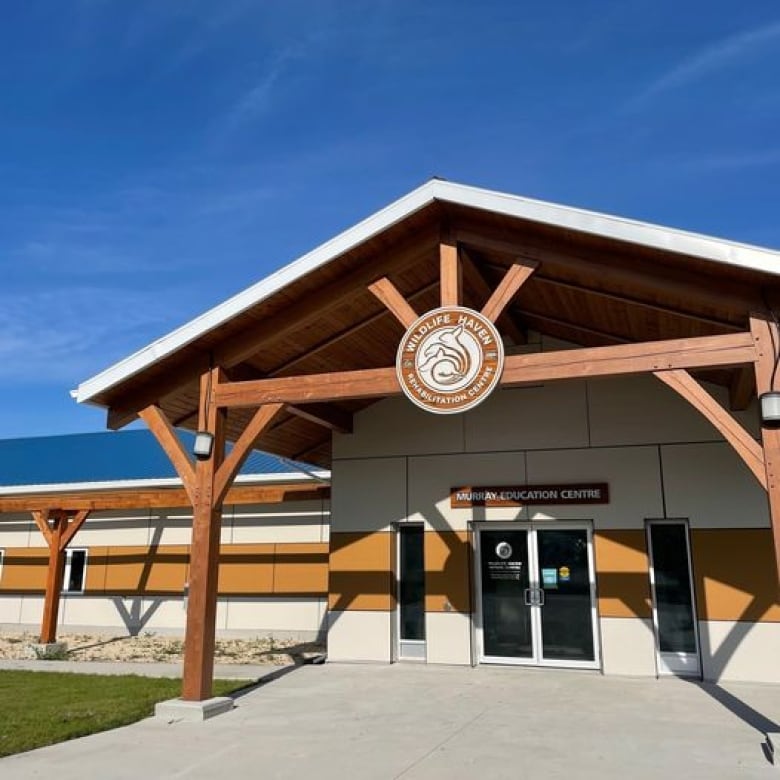A local organization that takes in injured, sick and orphaned wildlife is closing its doors to raccoons, sparrows, starlings and pigeons.
Wildlife Haven says as a non-profit organization, it’s faced challenges amidst economic shifts while dealing with the pandemic and Avian flu. And because the organization is dealing with strained resources in staff, volunteers and funding, a moratorium on invasive species and a temporary one on raccoons has been put in place, along with changes to rescues and pick-ups.
“Certainly this was a big decision for us and one we’ve been considering for a while now, but the reality is we’ve got limited resources, limited staff and limited volunteers,” said Wildlife Haven executive director Zoe Nakata on Up To Speed Thursday.
“We really just want to make sure that all of the work that we’re putting into protecting these wild animals is really having the largest impact in our ecosystems, in our communities, so that’s what really drove these decisions.”
Under the changes, invasive species like pigeons, European starlings and house sparrows won’t be treated.
University of Winnipeg biology professor Craig Willis said sometimes when people think about invasive species, they may think of plants or aquatic life forms like zebra mussels. But it can also apply to animals, he said.
“All these house sparrows and pigeons and starlings that are around are also invasive to North America, so I think it’s kind of a reasonable approach to prioritize species that really belong here and weren’t introduced by people,” he said. “I think that part’s really great.”
Up To Speed5:11Wildlife Haven putting a hold on treating invasive bird species and raccoons
Zoe Nakata speaks with Faith Fundal about why they are not treating certain birds and how they can harm the native to Manitoba song bird populations. She breaks down why their facility is putting a three year hold on treating raccoons.
In a statement to CBC News, a spokesperson for the province said there are a number of invasive plant and animal species established in Manitoba that threaten wildlife in various ways, including direct competition for habitat and resources, direct predation and disease.
The statement cited the European starling, which will compete with, and even displace, the Red-headed woodpecker — an at risk species — from nesting cavities in decaying trees.
House sparrows are another European species which competes with native bird species for resources such as food and nesting sites, the statement said.
Willis said he also feels for the organization.
“I think it’s maybe a little sad that such a fantastic place like Wildlife Haven is feeling the pinch as they are,” he said.

Wildlife Haven is also putting a three-year pause on treating raccoons, due to concerns about the high risk of disease transmission to humans and animals and the unsustainable cost to resources, a post on its website said.
If someone accidentally brings an invasive species or a raccoon to Wildlife Haven, they will inform them of the decision to not treat these species and provide guidance on alternative options, an FAQ section of the organization said.
This could involve directing them to other facilities or agencies equipped to handle these animals or advising them on safe release if possible and if the animal is left with them by accident, humane euthanasia will be provided, the website said.
They’ll also limit rescues and pick-ups to specific categories of animals that could be dangerous when mishandled.
It said on its website those species are large raptors & owls, like eagles, red-tailed Hawks, long-eared owls, peregrine falcons, large waterfowl like adult geese, pelicans, swans, loons, heron and medium mammals like the fox, coyote, beaver, otter and bats.
Meanwhile Nakata said in the past when people would call Wildlife Haven about an injured animal, staff or a volunteer with the organization would go to just about anywhere in southeast Manitoba to retrieve it, but that’s no longer feasible, so now the public is being asked to bring them to a drop-off location to Wildlife Haven directly.
“We’ve got a lot of partners in the community and we’re going to work together to all try to protect wildlife as much as we can,” she said.
